We’ve never really found a direct cause of acne, and I don’t think we ever will because it’s actually a very complex condition. However, among the numerous factors believed to influence acne development, one contentious topic is the potential link between dairy consumption and acne breakouts. People have speculated whether dairy products exacerbate acne or if this is merely a myth for a long time. I’m not a fan of super restrictive diets, so when it comes to removing things from our diets, there needs to be a lot of research to back it up. If you’re wondering if your dairy intake is making your acne worse, keep reading to find out the facts.
Can Dairy Make Acne Worse? – Here’s What The Research Says
The debate over dairy’s impact on acne arises from several studies that have explored this connection. However, the results have been inconsistent, leaving many people unsure about the actual relationship between dairy consumption and acne. Here’s a recap of some of the research:
The Hormone effect of dairy
One of the main theories linking dairy and acne is that it triggers an increase in certain hormones. Cow’s milk consumption has been found to increase both insulin and insulin-like growth factor-1 (IGF-1). An increase in both of these hormones has been shown to increase androgens, stimulate the sebaceous glands in the skin and affect keratinisation. This combination can increase the risk of blocked pores and worsening acne.
Skimmed Milk and Acne
Some studies have found a stronger association between acne and skimmed milk consumption than whole milk. The processing and removal of fat content in milk can cause more significant blood glucose spikes than in whole milk. This means that one of the reasons skimmed milk causes more of an issue in acne might be because of the way it increases blood glucose and insulin levels. However, other studies have found that all forms of dairy seem to increase the severity of acne.
Insulin Resistance
Sometimes it depends on what kind of dairy you’re eating. Things like ice cream, cakes and biscuits can combine sugar, simple carbohydrates and dairy. This combination will cause blood glucose spikes, which then throw off the balance of sex hormones and exacerbate acne by stimulating sebum production and inflammation.
Digestive function
Some individuals may react to dairy because they lack the correct enzyme to break it down. This can irritate the gut lining and upset digestive function, affecting the skin more so through gut health. For these individuals, there is the option for lactose-free forms of dairy; however, these products are not dairy-free, the lactose is just pre-digested through the addition of lactase enzymes.
Quality of dairy
Because of the research, all forms of dairy get labelled as bad. But this isn’t always true. One of the proteins in dairy that has been linked to increasing inflammation is casein. Research has shown that A1-casein found in cow’s milk is more inflammatory than A2-casein found in goat, sheep and buffalo milk. So for some individuals, swapping to organic, grass-fed goat, sheep or buffalo dairy may be better tolerated.
Another thing to consider is the probiotic benefits of some forms of dairy, such as cheese, yoghurt and kefir. In fact, this research study found that consuming kefir helped reduce the severity of eczema, increased skin hydration, and repaired the skin barrier. It is a small study, but it shows that not all forms of dairy will be negative for everyone. This is due to the probiotics found in high-quality kefir, which help regulate the immune system. Also, dairy is a great source of vitamin A which helps support immunity and skin health.
Gut health
If the gut lining is damaged, this can affect how well individuals are digesting their food. As well, when the gut lining becomes inflamed and irritated, it can increase the occurrence of food intolerances. Sometimes, by repairing the gut lining and supporting a healthy gut microbiome, individuals find that dairy doesn’t cause that much of an issue.
How to work out if dairy is making your acne worse
One thing I will say about dairy is that it’s not usually the sole cause of a person’s acne. If someone is struggling with an imbalance in gut bacteria, a damaged gut lining and nutrient deficiencies, removing dairy alone will not fix all of those issues. Removing dairy while working on repairing and rebalancing the gut will give that person more benefits, and then we may be able to reintroduce small amounts of good-quality dairy later on.
If you want to trial a dairy-free diet to see if it’s affecting your skin, these are my tips:
Be cautious of vegan and low-fat alternatives.
For a long time, vegan and low-fat alternatives have been labelled as healthier, but they’re not always. Some of these alternatives to dairy are still incredibly processed and essentially just junk food! This is because it’s hard to replicate the taste and texture of dairy – so they need to add things (sometimes it’s a whole load of sugar!). It’s best to follow a naturally dairy-free diet when choosing dairy-free alternatives. I prefer to include nut milk, tahini, coconut yoghurt and nutritional yeast as dairy alternatives, but do make sure you’re reading your food labels.
Check the sugar content
Check your food labels for any added sugar in dairy alternatives such as ‘sweetened’ almond milk and dairy-free yoghurts. Also, oat milk can cause blood glucose spikes if you drink it on an empty stomach (like in a coffee), because oat milk is a carbohydrate. Blood sugar spikes are a big driver of hormonal imbalances and issues within the skin. If we remove dairy but keep spiking blood glucose, you’ll still have skin issues.
Focus on nutrient-rich foods
When we remove foods from our diet, we have to make sure we add things back in to keep our nutrients balanced. Dairy is a good source of nutrients, including protein, which is important for hormones and skin health. If you take dairy out, ensure you get essential nutrients from other sources to support your overall health. This means increasing protein, healthy fats, whole grains and fruits and vegetables.
Get help from a nutritionist
There’s always so much focus on what we need to remove from our diets to help benefit our skin, and dairy is usually the top suggestion for acne. However, it is crucial to remember that each person’s body responds differently to different foods. When making dietary changes, they should be approached thoughtfully and should not compromise your overall nutritional needs – or feel super restrictive.
For personalised advice and a deeper understanding of what could be triggering your acne, book a consultation to see how nutritional therapy could help clear your skin.





0 Comments